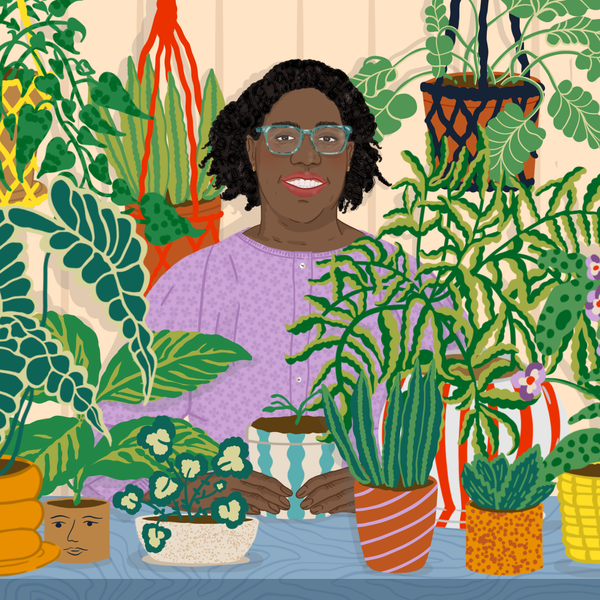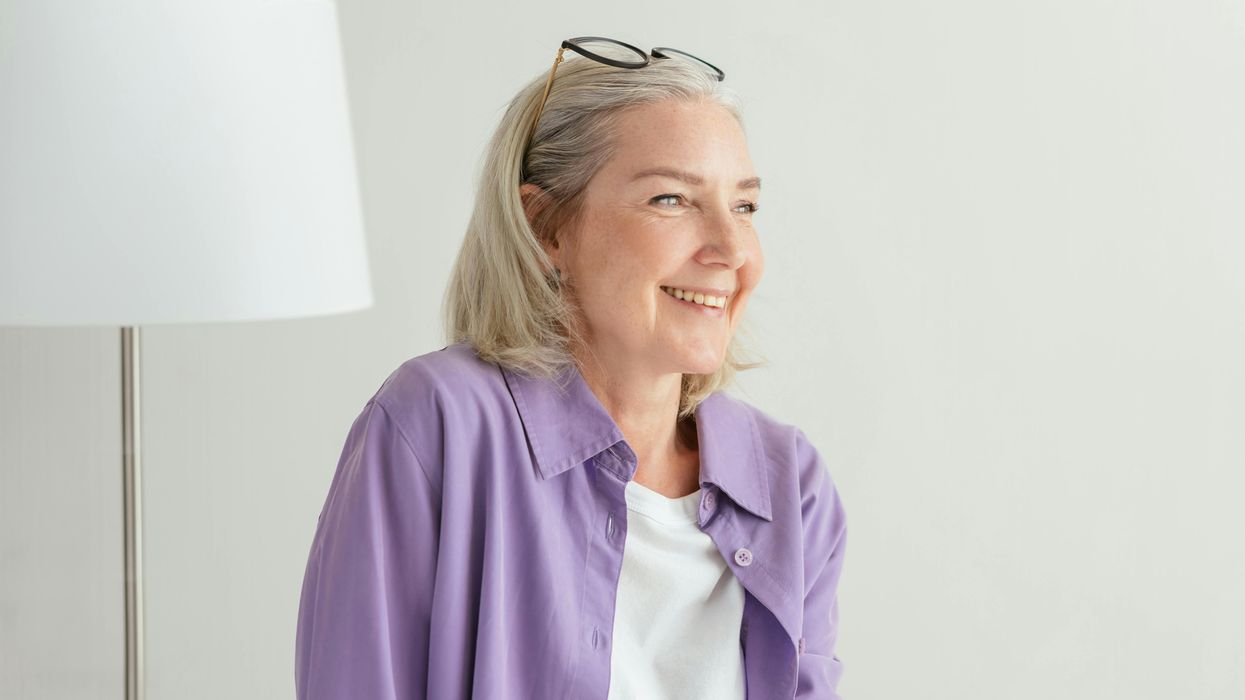She’s looking to make waves.
How Republican Andria Tupola Made the Switch From Music Teacher to House Minority Leader
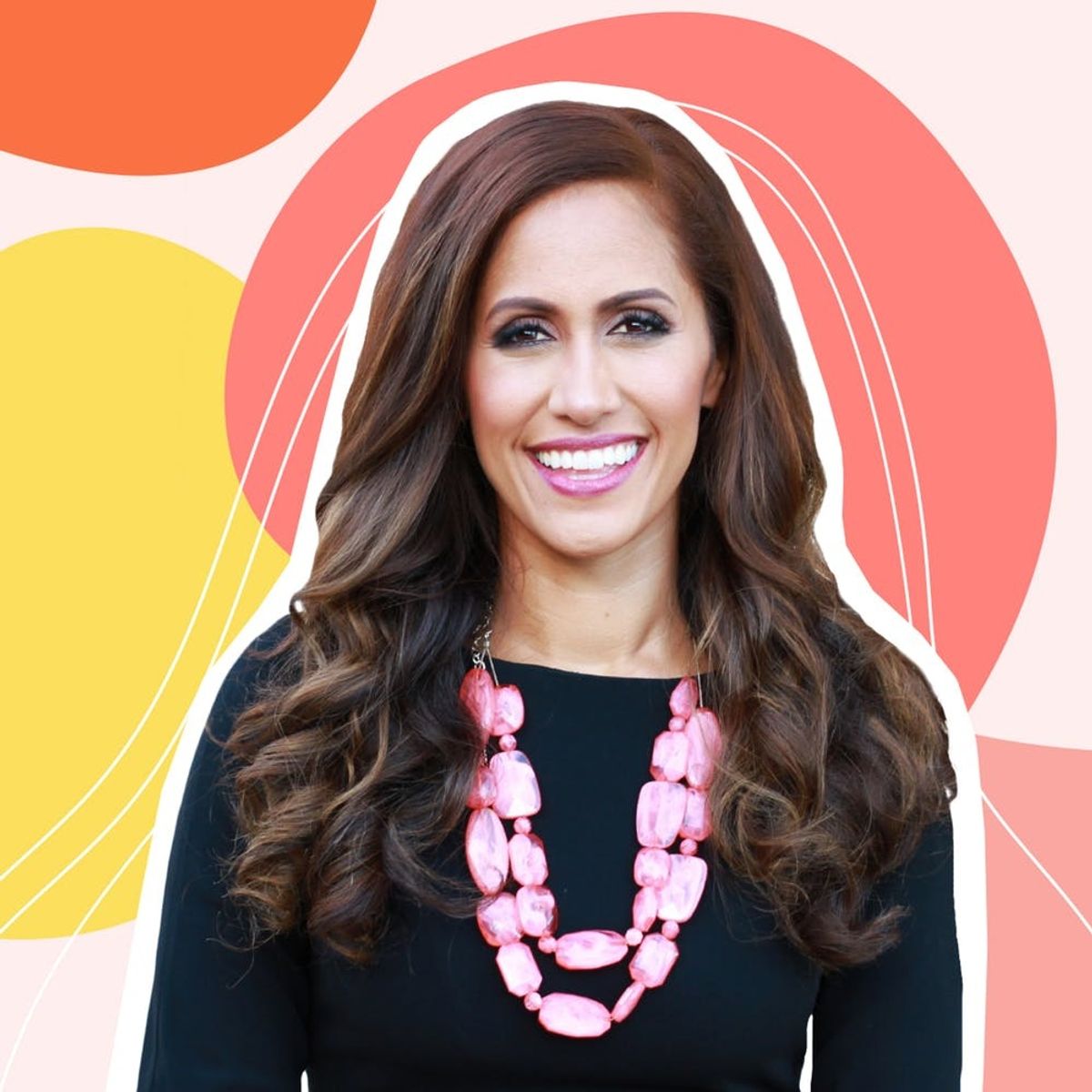

Women Who Run highlights female political candidates on both sides of the aisle who are poised to change the face of local, state, and federal government for the better.
Andria Tupola never planned on a career in anything remotely tied to politics. In fact, the native Hawaiian is a former music teacher who is currently in the process of finishing her PhD in music education. But that hasn’t stopped her from serving two terms representing the 43rd District in the Hawaii House of Representatives, being the first Samoan/Hawaiian woman to serve as the House Minority Leader, and aiming for the top in hopes of becoming the next governor.
Coming from an unconventional background and being a political outsider are both assets, she says. It’s a reminder that anyone can run for office and make changes in their local communities.
“Whether people agree or don’t agree, the best part is that we can change it!” she says. “If you don’t like something, then you can voice your concerns, you can run for office, you can suggest amendments. As you know, there have been lots of changes to the constitution from various amendments that have been brought forth. I just like that there’s a guideline that we can all agree to abide by, and if we want to change it, there’s a process to do that.”
As a Republican running in a Democratic-leaning state, she embraces the challenge of redefining the term “Republican” and pushing Hawaii into more of a two-party system.
“Being a Republican has stimulated a lot of conversation,” she says. “I believe in this state. It’s opened their mind to what a Republican could be. I’m younger, I’m 37, I’m a mom running for governor for the state of Hawaii. For me, the opportunity that opens up is that people can get involved at a younger age. And two, people can get involved even if they have family obligations — it’s still possible to do something like this.”
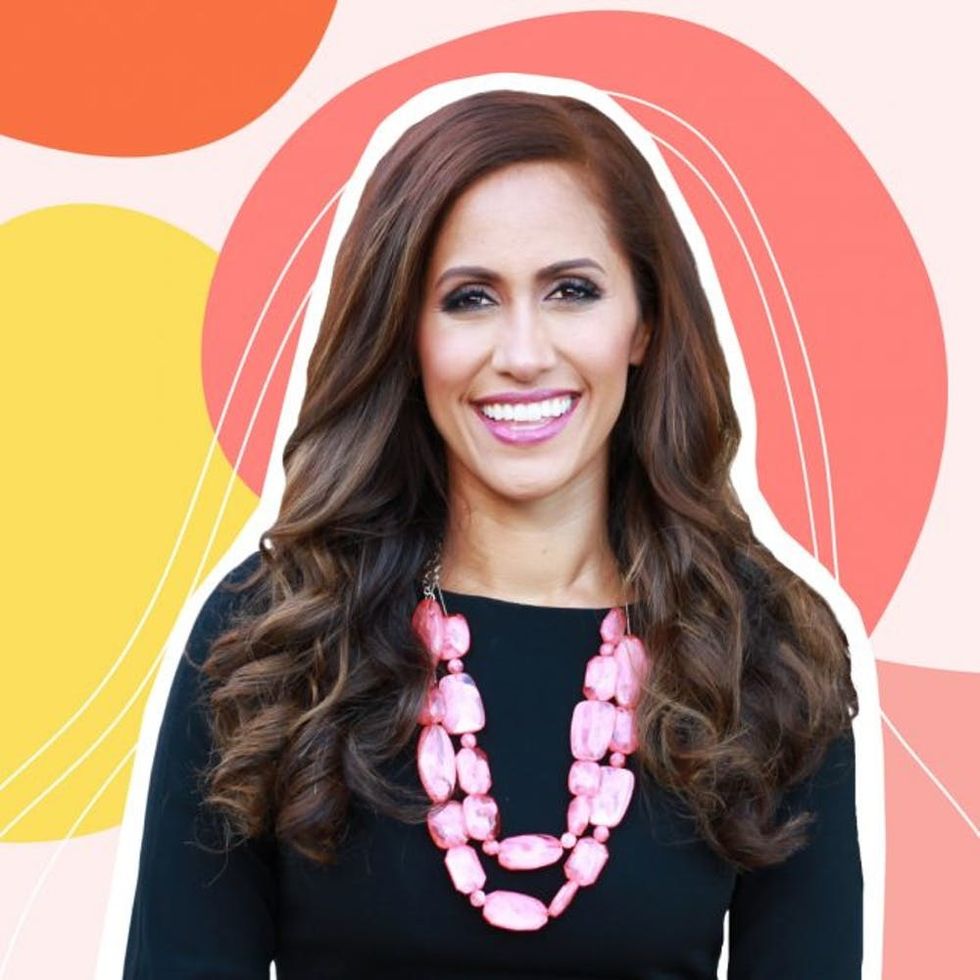
B+C: What originally inspired you to run for office?
Tupola: It was definitely my time in Venezuela. I lived there from 2003 to 2004, I was 23 years old, and I learned a lot about different philosophies of government and how it can impact and affect an entire society. When I got back from Venezuela, I was just very grateful for the freedoms that we have, especially the opportunities to participate in government. Not just in voting, but we have a greater opportunity in this country where you can run for political office to impact change.
So, I came back and I was more cynically minded than I’ve ever been in my life of different issues and philosophies that they have in Venezuela — that they have built a people that was entirely dependent on the government. I started to frame my own philosophy about leadership: that the government should be here to empower us and to help us to take ownership, but that we should never become totally reliant on the government. As you can see in Venezuela, it just didn’t end up well for them. If you go too far to that side of the pendulum, nobody can sustain an entire country, paying for their medical, their education, their housing. That was probably the one thing that got me involved.
After that experience, I came back, finished my degree, and in 2012, that was the first time I started to help candidates. I campaigned for my first candidate that year [Mitt Romney]. I didn’t even know anything about anything — I didn’t even know the difference between the political parties — I just got out and helped because I wanted to see candidates empower their communities and utilize philosophies that can help citizens become more self-reliant.
B+C: What was it about the philosophies of the Republican party that you were drawn to?
Tupola: I really support local businesses, being more mindful of how the economy can play a big role in empowerment. In supporting local businesses, you really do help the economy to flow because you’re not only creating jobs but you’re getting more within the local community. I’m a very community-minded person, so I do believe that even in Hawaii when you talk about business, there really are no large businesses here. Every business in Hawaii is a small business. If we don’t help and support them, we don’t have an economy here.
I appreciate the stance the party takes on supporting the constitution. One thing that took me aback when I was in Venezuela was just the amount of lawlessness. Everywhere I went, people would tell me that the law was there, but it was just a suggestion. Just the chaoticness of living through that really made me grateful for a base foundation on what this country was founded on. Small government; the less government in our lives, the better. Supporting local businesses, making sure to uphold the laws that we have in place now.
B+C: How did you make that transition?
Tupola: I was a missionary for my church. When I got back from Venezuela, I graduated in 2005 with my bachelor’s in music and then I finished my masters in music in 2011. So my track my whole life was to be a music teacher. I absolutely did not want to get into politics; I just wanted to finish my music career and become a music professor — which I did! It’s just that I stepped away to do this. It’s not a joke. Going from a field of music education into politics is like living in Japan. I don’t understand the terms; sometimes the word and the procedures confuse me. So, the past four years of being a legislator have been harder than getting my PhD. Getting a doctorate degree in a field that you know is easy. But stepping into the world of politics and having to become competent on thousands of issues, that is hard. I have to have a stance about what I think about the second amendment, what I think about the Affordable Care Act […] I’ve sat on eight different committees as a legislator — finance committee, public safety, transportation, labor, higher ed, education, health, human services — and I’ve never learned so much different content in such a short period of time.
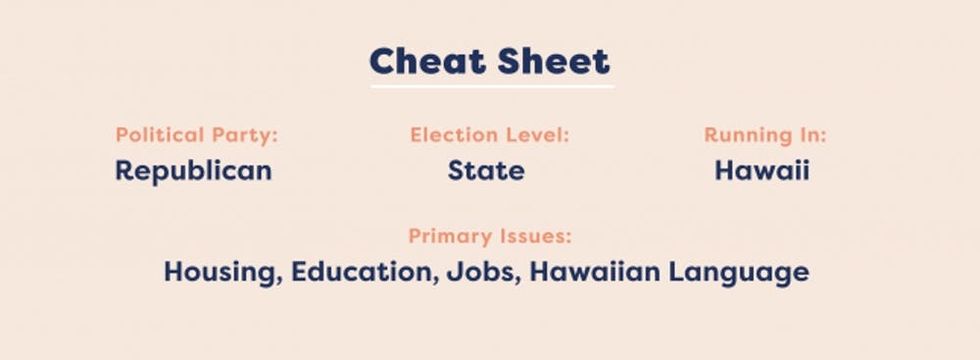
B+C: What are the main issues you’ll fight if you win?
Tupola: I have to do something about the cost of living. There’s no question in my mind that it’s the most important thing we have to do for our state right now. We are facing such a huge outflux of people leaving Hawaii, local families determining they can’t live here anymore because it’s too expensive, local businesses determining if they can even keep their doors open. There are native Hawaiians that haven’t got housing. There is a huge issue here that we’re not addressing and that is: How do we really [make] the cost of living [affordable] so that local families can go on living here? In conjunction with the cost of living, you have to talk about housing. We have a really bad issue with bringing in developers to build housing that is not for local families, where the median price of a home is like a million dollars. There needs to be more support for local developers, being mindful of the population, and making sure that we have more options for affordable housing.
B+C: Wouldn’t that require more government intervention in terms of regulation?
Tupola: No, that requires the government getting the heck out of the way. Right now, just to build anything like a wall or structure, the average time is 17 months to get a permit. I just met with one of my constituents who can’t get a permit to add an additional room onto his house for his daughter who can’t afford housing. The city won’t give him the permit because they can’t tell how much weight the bridge next to the house can hold, and if we don’t know the weight of the bridge, then we can’t determine if a fire truck can go through it. And if the fire truck can’t go through it, then in the event of a fire, it can’t get put out — it is just so ridiculous. I called the fire chief and I’m like, are we really talking about the weight of the bridge? Our permitting process is a bureaucratic layer of mess of seven different things that you have to get through.
It’s all for safety, but the lag time to get this done and the cost incurred is one of the biggest problems. The delay of permitting increases the cost of your project and your labor. If you have guys waiting on the line, they’re getting laid off. […] These people are losing jobs, their families are going on unemployment and food stamps because they can’t afford to eat because a piece of paper isn’t getting signed. […] All of this is due to government unnecessary regulation with a million steps and 10 people, and everyone has a different view of what needs to [be done to] complete step A and B. If these guys don’t have a legislator like me that sticks my hand in the problem and does it, these are just regular people who don’t know what to do with an incompetent government. We need to make decisions like first responders because these decisions absolutely affect local people’s lives.
B+C: What has posed some of the biggest challenges in your campaign so far?
Tupola: It’s always gotta be hard to raise money. When I ran the first time, it was difficult. My first race, I raised $56,000 and people were like, “Holy smokes! How did you do that?” and it wasn’t easy, I’ll tell you that much. The second race, I raised almost $70,000, and this race, we’re up to $400,000 right now. But it’s a statewide race. I’m running banners, but some of these guys who run for statewide races, they’re dropping like a million dollars. We just bought some radio ads for $1,700 here, $2,000 there. It’s always a challenge, but it’s good because it keeps our campaign humble, very grassroots-oriented. There’s nothing fancy about the way that I do things; we just get out there and do the work.
B+C: Politics are always a spectrum. Where do you see yourself fitting within the modern Republican party?
Tupola: I would say that everyone has a different perspective of what a Republican is, and I think obviously there’s a lot of stigma toward the Republican party, but at the end of the day, there’s not one person that defines what a Republican is. So I believe that one of the things our party is known for is embracing diversity of thought. In this last presidential election, there were maybe 10 candidates running for president. There were all these people running because there’s so much diversity of thought of where the Republican party thinks the country should go.
So I always remind people that whenever you’re part of a group, there’s never one continuous word or description of it. A group is made up of many diverse individuals who have diverse thoughts. I would say for me, I am a very distinct individual who is very community-minded, that talks about issues on a very ground-level basis and grassroots. Even when people speak, they say, “Wow. You’re not very partisan.” And I say, “Yeah, I just talk about parts that matter: schools, laws, facilities, getting Hawaiians in homes.” And none of that has to do with the party, it all has to do with the necessity of our government doing its job to help facilitate a better life for the people of Hawaii. I don’t know where I fall on the spectrum; people might call me a moderate, but again, it’s all about perspective. For some people I’m too right-wing; for some people, I’m a screaming liberal.
B+C: What advice would you give to women who are interested in running for office?
Tupola: I would say check your motives. If your motive is to serve the people and better the community, then do it. If you have the motive to see positive change and you can envision that, get involved. But I would never ever advise anyone to get involved in politics if you’re looking for a career or looking for a powerful position. My main concern with people that I work with is if you have the real desire to love the people you serve and put yourself aside, and do what the people need and ask those real questions — that’s why you should get into office. If you have any other motives, just check your motives, because it is no joke to run for office. Once you get in, you need to be ready to have hundreds of thousands of people pick apart every idea you’ve ever had in your life. If that motive or drive isn’t pure or centered on the people you serve, you will get burned out for sure.
B+C: How can people support your run?
Tupola: I have a website at votetupola.com. We raise money every day, so you can donate. If you want to volunteer, even if you don’t live in the state, we have people from out of state who help all the time. They do calling, they do social media posting. And lastly, if you are in the state of Hawaii, the best thing you can do to help me is you can vote for me.
(Design by Yising Chou/B+C)

